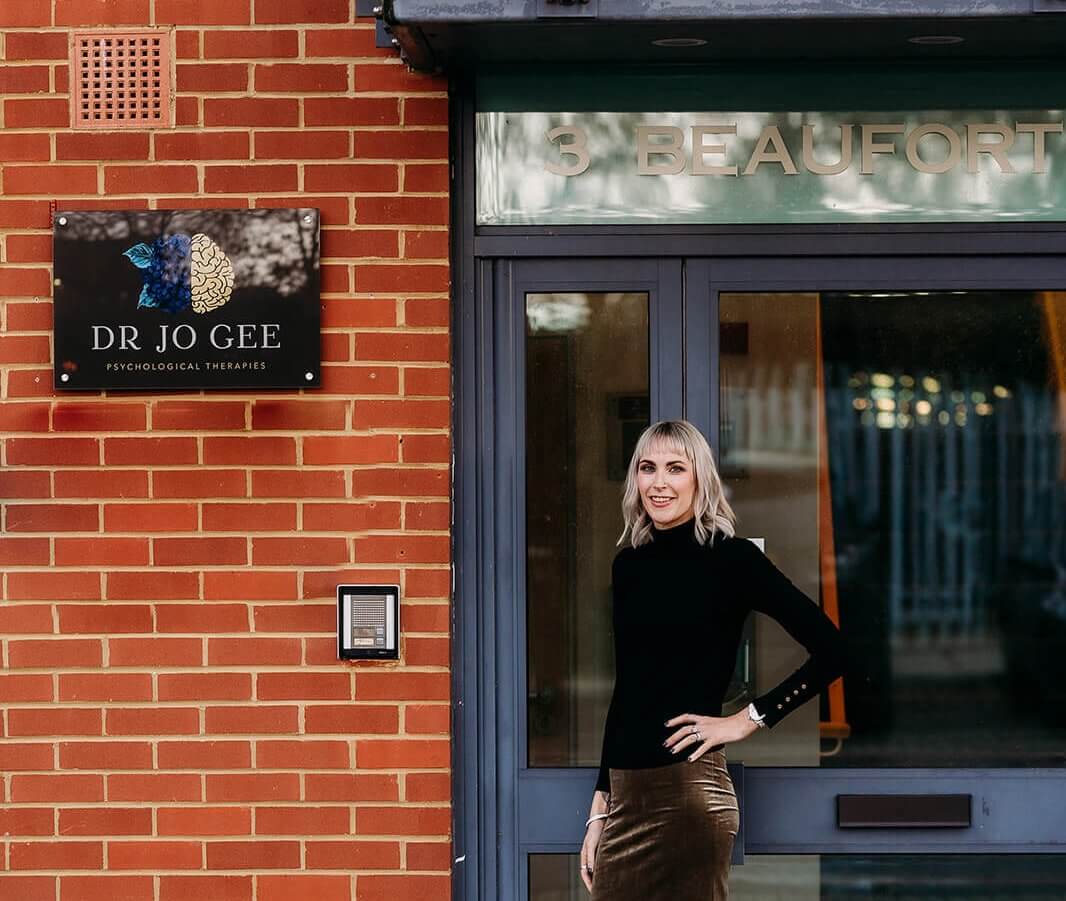
Dr Jo Gee Psychological Therapies
PUBLICATIONS & COLLABORATIONS
Social anxiety can be overwhelming, but there are always strategies to manage it. Jo shares expert advice on identifying triggers and implementing relaxation techniques to build confidence in social settings.
Imposter syndrome can silently undermine financial confidence and decision-making. Jo discusses how feelings of inadequacy cause you to undervalue yourself and how to overcome it.
Many millennials are suddenly anxious about turning 30. Jo explains the challenges of this new ‘quarter-life crisis’ and the importance of self-compassion at this time.
Award ceremonies are full of tear-stricken celebrities making emotional speeches. Jo explains the power of tears and how they can help us heal, find strength and process emotions.
As Bristol is named the UK’s kindest city, Jo gives some insight into what motivates kindness and how it’s good for both our body and mind.
Covid robbed us of so much we took for granted. In one study, nearly 60% of Brits said that hugging friends and family was the post-Covid activity they looked forward to most. Jo explains how simple connections with loved ones are important to our wellbeing and mental health.
As lockdowns showed us the importance of selflessness and generosity, Jo explains the psychological benefits of being kind and generous to others.
Becoming a mother is as transformative as it is challenging. Jo discusses how we should embrace the fourth trimester and gives top tips on how to settle an upset newborn – an invaluable tool for any new parent!
Maternal mental health is essential but overlooked. Jo explores the challenges many mothers face and offers some practical ways to improve your wellbeing during this transformative period.
Hot flushes can be a difficult part of menopause, but Jo reveals how mindfulness can be surprisingly helpful in gaining control over symptoms for some much-needed physical relief.
Together with Del Loewenthal, Jo investigates the benefits of mindfulness-based interventions for women during menopause, helping to reduce symptom severity and improve quality of life.
Mindfulness techniques can help manage pain, fear and anxiety, making them perfect for childbirth. Jo explains some core techniques to help mothers during labour and beyond.
Jo discusses how we can blend mindfulness and cognitive techniques to improve resilience and wellbeing as a way of managing anxiety and depression.
It’s easy to get overwhelmed by stress in our busy everyday lives. Jo explains the reason behind stress, some of the side effects and techniques for managing stress more effectively.
Swearing at work might seem unprofessional, but it’s far more common than you might think. Jo explains its cathartic benefits but shares a warning about the potential tension it could create.
Understanding personality disorders starts with breaking stigma. Jo reveals how tailored therapies like DBT help to regain emotional control and lead more balanced lives.
In a book that discusses therapeutic interventions for the criminal justice system, Jo describes practical strategies for counsellors and therapists, offering practical approaches for addressing complex needs.
Sports stars have an incredible ability to capture people’s hearts. Jo delves into precisely what it is about sports personalities that captivates us and how watching them can inspire us.
Lighting can make or break a home’s ambience and even have an effect on your mood and mental health. Jo highlights the link between lighting and low mood, explaining Seasonal Affective Disorder (SAD) during winter and how artificial lighting can help serotonin levels.
There are two different ways to understand despair – Kierkegaard view of it as a deep struggle and the forensic view that treats it like a condition to manage through therapy. Jo explores how each approach affects how despair is handled in prisons.
Jo explores tailored therapy approaches for female offenders with personality disorders within the criminal justice system. It discusses how to modify interventions to address their unique needs and challenges, providing counselors and therapists with practical tools to better support rehabilitation and emotional growth.
This article uses Empirical Phenomenological Analysis (EPA) as an example to critique the empirical nature of phenomenological research methods. Jo discusses a return to phenomenology’s roots through reverie to better capture lived, relational experiences in research.
Jo evaluates the Holloway Skills Therapy programme (HoST), which uses a modified form of dialectical behaviour therapy (DBT) to support female offenders with borderline personality disorder at Holloway Prison.
Jo explores psychotherapists’ experiences of working with despair in UK prisons. It examines how despair is viewed as a pathology linked to self-harm and suicide within the prison environment and highlights the role of therapy in providing coping skills and growth opportunities for affected prisoners.
Jo explores psychotherapists’ experiences of working with despair in UK prisons through a phenomenological lens. She uses Empirical Phenomenological Analysis and reverie to deepen understanding and rethink therapeutic approaches to despair.
Jo highlights the lack of research on psychological therapies in prisons, often focusing on specific programs like drug treatments. She explains the benefits of more studies on individual and group therapies, offering new alternatives to traditional evidence-based practices.
Jo outlines the progress of the Phototherapy in Prisons (PIP) project in its first year, focusing on establishing the initiative, conducting a literature review, and testing four main phototherapy approaches.
— JOURNALIST, NATIONAL MEDIA
“From start to finish, it taught me so much about myself.”
“Thank you for challenging me when I needed it.”
“I can’t believe how much progress I’ve made in a short time.”
“After many years of therapy, you are the first person who gets me.”
Ready to book your appointment? Please press the button below to see our online availability. Can’t see what you need, then don’t hesitate to send a message via the contact form below or call or email our offices.
Whatever your current struggle, we’re here to help.
We offer online psychiatry, psychology, counselling and psychotherapy appointments. Contact us for a free 15-minute phone discussion to ask any questions you might have.
Many of our appointments can be conducted online if that’s preferable or easier for you.
For clinic appointments, we work from 3 Saxton Parklands, Guildford, Surrey, GU2 9JX.
Clients visit us from several nearby locations, including Addlestone, Aldershot, Ashford, Bisley, Camberley, Chertsey, Chobham, Cobham, Cranleigh, Dorking, Egham, Epsom, Esher, Farnham, Farnborough, Fleet, Godalming, Guildford, Haslemere, Horley, Horsham, Kingston, Leatherhead, Lightwater, Oxshot, Redhill, Reigate, Richmond, Send, Shere, Staines-upon-Thames, Sunbury-on-Thames, Surbiton, Virginia Water, Walton-on-Thames, West End, Weybridge, Windlesham and Woking.
Message or call us now to book an initial consultation.
ADDRESS
DJGP
3 Saxton Parklands
Guildford
GU2 9JX
ADDRESS
Guildford Therapy Rooms
3 Beaufort Parklands
Guildford
GU2 9JX
Hours
Monday – Friday: 9.00am – 9.00pm
